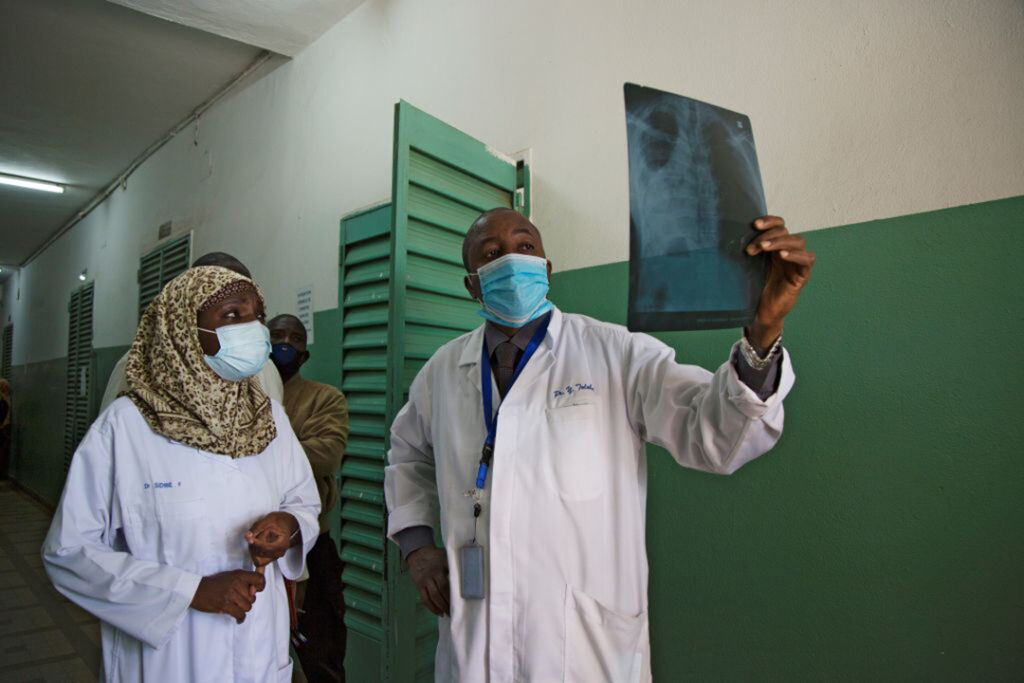ADF STAFF
After two years of lockdowns, social distancing, mask-wearing, strained health systems and more than 251,000 coronavirus-related deaths in Africa, health experts are evaluating the continent’s response to the pandemic.
When the outbreak began, national responses were fairly similar. Most nations issued lockdowns and urged people to wash their hands frequently and practice social distancing. But after a few months, countries started handling the pandemic differently, Catherine Kyobutungi, executive director of the African Population and Health Research Center inKenya, told The Conversation Africa.
“There are countries like Uganda and Rwanda that took a more public health approach, focusing on trying to stop infection at all costs,” Kyobutungi said. “And those, like Kenya, that took a more economic approach, focusing on minimizing the effect of lockdowns. Of course, Tanzania was in a league of its own when it stopped all public health measures that were recommended at the time.”
The late Tanzanian President John Magufuli was a COVID-19 denier who urged people to pray the disease away. President Samia Suluhu Hassan, who took office after Magufuli’s death, changed the country’s response almost immediately, assembling a task force to address the pandemic, ordering the installation of medical oxygen production plants at its largest national hospitals and taking steps to combat misinformation.
Kyobutungi said misinformation about the disease prevailed in many countries because public health messaging was inadequate.
“They also failed to adequately communicate simple information like where people could get tested, vaccinated and report vaccine side effects,” Kyobutungi told The Conversation Africa. “It just shows how much more we need to do as a community of public health practitioners to communicate effectively now and in the future.”
Although some countries instituted COVID-19 testing at their borders, others did not. Kyobutungi argued that a regional approach to the pandemic would have been more appropriate.
When the pandemic began, there was little data to inform medical and public health decisions, but as COVID-19 spread, more data became available, making decision-making easier..
“I think there is still room for improvement when it comes to critically assessing public health measures and their benefit in real-time,” Michelle Groome, head of the Division of Public Health Surveillance and Response at the National Institute for Communicable Diseases in South Africa, told The Conversation Africa. “Some measures introduced early on in the pandemic, for example temperature screening, did not prove to be effective in detecting infections, yet are still being used as part of the response.”
Groome added that COVID-19 underscored the benefits of global data sharing, such as when South Africa provided information on the omicron variant soon after it emerged.
“Our scientists were able to actively engage with the [World Health Organization], public health institutions in many countries and international media outlets, which enabled data to be shared quickly and assisted with the omicron response in other countries,” Groome said.
Experts say the pandemic is far from over, as a fifth wave of COVID-19 infections is expected to hit South Africa as soon as late April.
John Nkengasong, who heads the Africa Centers for Disease Control and Prevention, looks forward to a time when African nations don’t have to rely on other countries for medicine, medical supplies and equipment. Nkengasong and other health experts believe that Africa’s experiences dealing with previous disease outbreaks, such as Ebola, helped health systems handle COVID-19. But there is more work to be done, he said.
“A key pathway for collective global security is an Africa that is self-sufficient,” Nkengasong told The Guardian.

